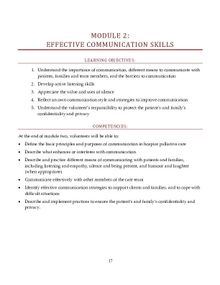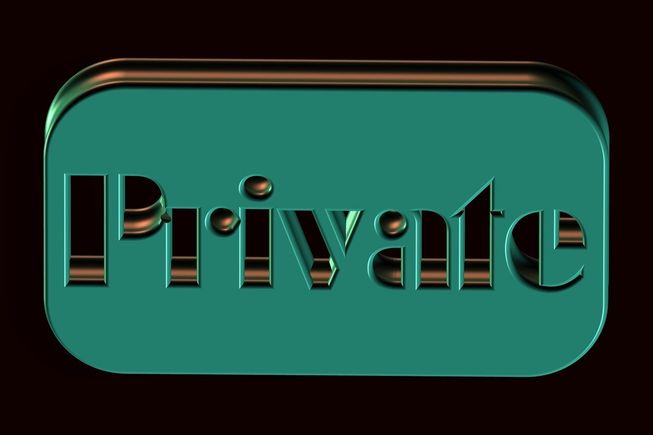This talk was given at a local TEDx event, produced independently of the TED Conferences. William Ury explains how listening is the essential, and often overlooked, half of communication. His stories of candid conversations with presidents and business leaders provide us with impactful lessons, such as understanding the power of a human mind opening up. He asks us to join a listening revolution, and promises that if we all just listen a little bit more, we can transform any relationship.
fadfadf
What is Effective Communication?
This module explores the skill of deep, active listening as a healing tool in the world of hospice. Below are links to video clips, as well as readings and assignments that will help you explore the world of communication.
fadfadf
 PDF
PDF
To begin, please read module 2 of the Canadian Hospice Palliative Care Association's handbook, "Effective Communication Skills"
fadfadf
Read each item and then check the number indicating how frequently you actually use this skill when talking with others. Remember, this is a self-assessment, so be honest!
The Power of Listening
William Ury | TEDxSanDiego
Click the link in the title above, or the button below, to read the article at the website, "AFS Consulting."
Communicating with Tact & Diplomacy, Part 4: Common Listening Misconceptions
By Doug Jordan|April 21st, 2015| AFS Consulting
We are all capable of listening effectively in different situations and to different people. Listening effectively is, however, an active process – something we have to do consciously and something that takes practice. Yet there are obstacles to our ability, or willingness, to become better listeners.
Here are some common misconceptions, or myths, about listening...
Communicating with Tact & Diplomacy, Part 4: Common Listening Misconceptions
By Doug Jordan|April 21st, 2015| AFS Consulting
We are all capable of listening effectively in different situations and to different people. Listening effectively is, however, an active process – something we have to do consciously and something that takes practice. Yet there are obstacles to our ability, or willingness, to become better listeners.
Here are some common misconceptions, or myths, about listening...
Brené Brown on Empathy
What is the best way to ease someone's pain and suffering? In this beautifully animated RSA Short, Dr Brené Brown reminds us that we can only create a genuine empathic connection if we are brave enough to really get in touch with our own fragilities. Voice: Dr Brené Brown Animation: Katy Davis (AKA Gobblynne)
Reflective listening is responding to both the feelings and content of the speaker to show that you are listening and understand the meaning behind what they are saying.
In this exercise, consider the response that best fits the description of ‘reflective listening’ for each of the statements.
In this exercise, consider the response that best fits the description of ‘reflective listening’ for each of the statements.
fadfadf
Respecting Privacy
To respect the person’s and family’s right to privacy, you do not disclose:
Respecting privacy can be particularly difficult if you live in a small community where everyone knows everyone else. Neighbours and friends of the dying person and family may know that you are a volunteer and ask you questions. In those situations, you should always suggest that they talk directly to the family.
Protecting Confidentiality
Confidentiality means “entrusted with secrets”. As a member of the care team, you may have access to other people’s personal and health information. You are required to keep all that information confidential.
Breaching of confidentiality by a volunteer is a serious breach of ethics and may result in termination.
The only time it is acceptable to break confidentiality is when there is an unacceptable risk of harm to the individual or someone else, such as:
To respect the person’s and family’s right to privacy, you do not disclose:
- who you are caring for
- the state of wellness of the ill person or family members
- anything that is said to you by the person and/or family members
- anything that you observe or overhear during your assignment
- how the person died
- how the family members grieve.
Respecting privacy can be particularly difficult if you live in a small community where everyone knows everyone else. Neighbours and friends of the dying person and family may know that you are a volunteer and ask you questions. In those situations, you should always suggest that they talk directly to the family.
Protecting Confidentiality
Confidentiality means “entrusted with secrets”. As a member of the care team, you may have access to other people’s personal and health information. You are required to keep all that information confidential.
Breaching of confidentiality by a volunteer is a serious breach of ethics and may result in termination.
The only time it is acceptable to break confidentiality is when there is an unacceptable risk of harm to the individual or someone else, such as:
- a communicable disease that must be reported by law to the authorities (This is done by the nurse and/or physician.)
- a medical condition (e.g. mental illness) that may result in personal harm or harm to others
- reasonable suspicion of abuse.
fadfadf
Congratulations!
You have completed module 2: Effective Communication Skills
Go back to the online module page to access Module 3: Family and Family Dynamics
Go back to the online module page to access Module 3: Family and Family Dynamics





